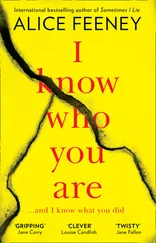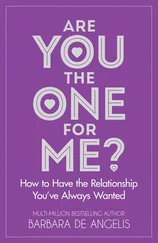It was Svetlana. She wore a fitted red sweater with a plunging neckline. Her skin was milky and virtuous, and her breasts, I realized with a start, were large. My own body was girlish; I was still waiting for boobs. Maxim kissed her three times in the Russian fashion—left cheek, right cheek, left cheek—and then she spotted Andrei and moved toward us.
“We’ve been waiting for you,” Andrei said.
“Privyet,” Svetlana said. She lit a cigarette.
“Careful,” Andrei said. “ Nasha Sarah has the delicate constitution.”
“Why is U.S. Constitution delicate? Because of founding fathers? They were not real men?”
“Not the United States Constitution,” I said. “My personal constitution. Like my makeup.”
“You need the makeup,” she said. “You would look much better with the lipstick.”
Andrei ignored us. “U menya tost,” he announced to the room, and glasses were refilled.
“Nyet, spasibo,” I said, but Svetlana topped off my glass anyway. I didn’t want to be rude. This is how diplomats become alcoholics, I thought.
The toast was to Maxim, and it was obviously affectionate. The audience was rapt. It was like being at a wedding. Andrei concluded by wishing his friend happy birthday, and then everyone broke into clamorous song. On birthdays Russians of my generation sing a song from a beloved Soviet cartoon called Cheburashka. We had to watch it in college. In the cartoon a crocodile plays an accordion in the rain. “Let people stare,” he sings. The song is cheerful, but the lyrics of the refrain (“Unfortunately, a birthday is only once a year”) suggest that joy is fleeting. “Can’t they just enjoy the moment?” someone in my college Russian class asked, “without reminding you how soon the fun will end?”
Andrei was at my side, pouring more vodka into my glass. He sang part of the birthday refrain, soft as a lullaby. “Tolko raz v godu.” Only once a year.
Svetlana pinched my arm. “Sarah,” she said. “Your birthday will soon be here.”
“How do you know when my birthday is?”
“Jennifer told me.”
“When?”
“On seventh of November.”
“I mean when was she talking about my birthday?”
“She wanted to buy for you the gift,” Svetlana said. “We with Jennifer were at the diplomat magazin. ”
“The diplomatic store.”
“ Da. It was day before she returned to America. I thought I would never see her again.”
Did Jenny give me a birthday present from Russia? What I remembered most clearly were her rhapsodic descriptions of Svetlana that fall. I recalled, suddenly, her determination to learn the Cyrillic alphabet and her novice efforts to form Russian letters on the wide-ruled pages young children use.
“And you remember my birthday, even after all this time?” I said. I wanted her to confess that she had talked to Jenny about me more recently.
“Is easy to remember. It is our Revolution Day.” November 7 was when the party marked the anniversary of the October Revolution; during Communism it was a day of military parades and marching Young Pioneers. Svetlana wandered off.
What did Jenny give me for my eleventh birthday? Sixth grade. Was that the year I celebrated at a bowling alley? Jenny, my mother, and me, with a lane to ourselves. A cake with cream-cheese frosting. It all came back to me. Jenny and I took turns penciling our scores into the squares on the sheet of paper provided. I got two strikes that day. I won both games and choreographed a goofy victory dance. I’d spent so much time inventorying my losses and rejections that I’d lost sight of the wins. How many other moments of triumph were buried in the archives of my brain? Jenny’s birthday gift to me was wrapped in green and white stripes. I recalled tearing off the paper with uncharacteristic abandon. A balailaka. That’s what she gave me. A Russian folk instrument, painted red with gold flowers. My mom strummed it right there in the bowling alley while she and Jenny sang.
“Who is Jennifer?” said Andrei.
“My friend,” I said.
“The dead friend?” he said.
“Svetlana knew her, too,” I said. “She visited Moscow when she was young.”
“Tolko raz v godu,” he sang again. Only once a year.
I was already feeling muddled. The room was hot, and people were drifting in and out of frame, blurring in and out of focus. What the fuck, I thought. Might as well get drunk. I swigged the whole cup of vodka and shook off the burn. The man with the guitar shouted, “This is for our American!” and broke into the chords of “Hotel California.”
“I hate the Eagles,” I said under my breath.
* * *
LATER—I DON’T KNOW how much later, because I’d lost all track of time—Andrei had me pressed against a wall in the living room. His hands inched up my legs, but he kept his eyes on me, as if he didn’t know what his hands were doing.
“I don’t trust you,” I said. My voice was unsteady.
“You’re not supposed to trust me,” he said. “I’m Russian. Your government taught you not to trust me. But you trust in God, yes? It says so on your dollars.”
“I don’t believe in God,” I said.
“I thought all Americans believed in God.”
“Not me,” I said.
“What do you believe, Sarushka?” He prodded me with the diminutive; in his grip my name turned tender. He wrapped his hands around my throat, and I thought, for a moment, that he was going to squeeze the life right out of me. Instead he cupped my neck and pressed his thumbs gently into the knobs of my collarbones. “So skinny, Sarushka,” he said. He bent forward, let his lips grace the triangle of skin between his hands.
“I think I’m going to faint,” I said, but I was already falling as I spoke. I was on the floor without knowing exactly how I got there.
“You melted,” Andrei said. He was crouching next to me, and I could see that he wore combat boots and that they were flecked with white paint. I tried to stand but couldn’t.
“Vsyo khorosho?” he said. Is everything all right?
“I’m sorry,” I said. Not because I’d fallen but because I was sorry to have caused a fuss. I didn’t want him to worry about me. I’ve never been good at leaning on people. I’d had only two drinks, but it was on an empty stomach. And the room was so hot. And I’d been standing in one place for too long. My knees must have locked. I tried to explain this to him. I tried to tell him that it was nothing to worry about, that this was not the first time I’d fainted, but my words warbled. I was groggy. I didn’t know what language I was speaking. I didn’t see Svetlana; had she gone home? There were still a lot of people there, but the party no longer had a nucleus. Everyone was scattered in different corners of the room. One couple was making out on the couch, sucking at each other with gasping, gulping sounds.
“Vsyo khorosho,” Andrei said again, but it wasn’t a question this time. Everything’s okay. He repeated it again and again. And so I finally stopped trying to keep my head up and just let it fall onto his willing shoulder. Someone turned up the stereo. We sat against the wall with eyes shut.
“ The Wall, ” Andrei said to me in English. “Pink Floyd. That was an important album for us, before glasnost. It was so strange, you know. I went away to Washington, and when I came back, everything was different. In D.C. we hardly left the embassy grounds, so we were living in a miniature Soviet Union, but then we came back in 1989 and it was like a different country. We were raised to be like everyone else ... But now ...” He laughed. “Capitalism is all about individualism.”
Читать дальше












